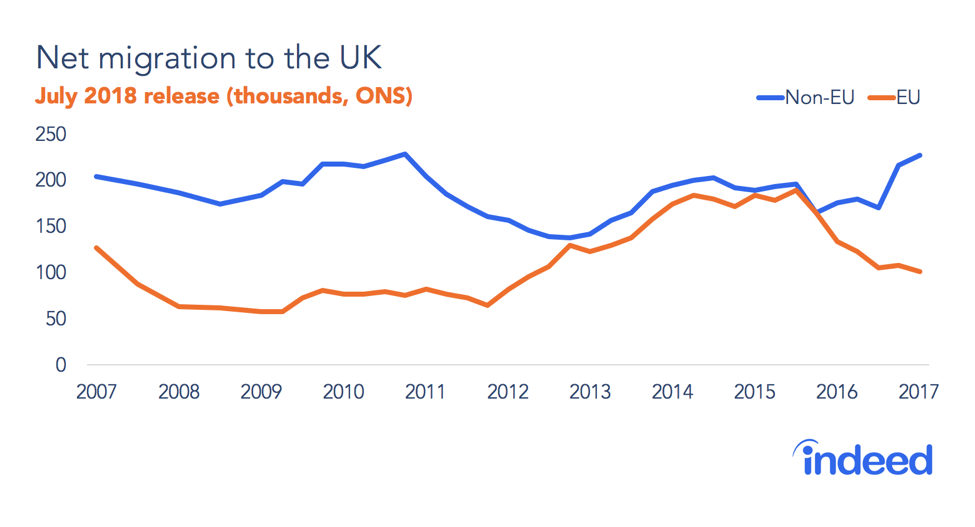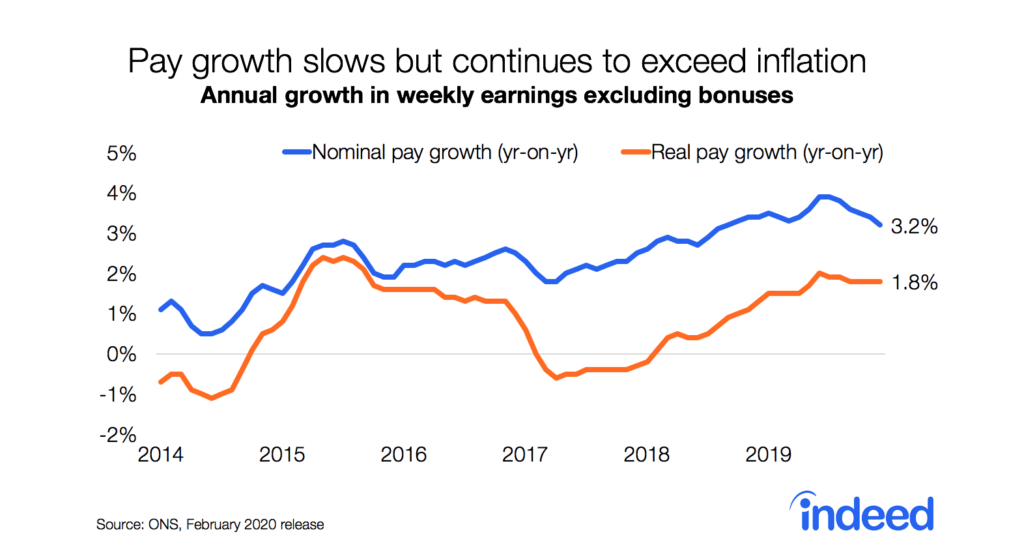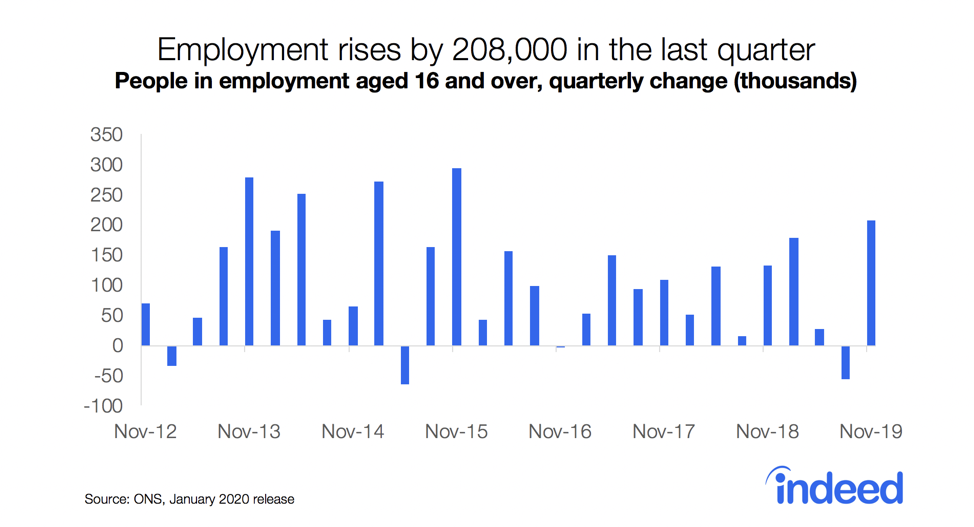According to data released today from the ONS on migration into and out of the UK through December of 2017, Brexodus remains a threat rather than a reality. While net migration from the EU is slowing, the millions of EU citizens living and working in the UK are not yet rushing for the exit.
With unemployment at its lowest level for four decades and the pool of available workers already shrinking fast, the prospect of an exodus of talent has been keeping many employers awake at night.
However, today’s evidence suggests that so far we have not seen a nightmare Brexodus scenario.
While the number of EU citizens coming to the UK to work has fallen from its pre-referendum level – and the number of Europeans leaving has picked up – the slowing in net migration from Europe has been cancelled out by increased immigration from other parts of the world, in particular from Asia, which accounted for two thirds of the non-EU migrants.

Despite its sluggish pace of growth, the British economy continues to create jobs, and today’s data reveals that 2017 saw a 13% increase in the number of immigrants coming to the UK to take up a job offer.
This drives home the importance of foreign workers to the UK’s strained labour market, and will be particularly welcome to the regions most exposed to the danger of Brexodus.
Both London, with its heavy reliance on foreign-born workers, and rural areas with a large and people-hungry agricultural sector, need a constant flow of talent from overseas.
For now the tight labour market – where employer demand for staff is outstripping the supply of workers – is pushing up average wages, but in the longer term it risks being a major speed bump for the economy.
The latest ONS data covers only through 2017. Looking forward, based on analysis of data from job search on Indeed, there is increasing interest on the part of UK-based workers to target their job search toward other EU countries.
But at least today’s data from the ONS shows that the threat that the tap of foreign workers may be turned off has so far failed to materialise.






